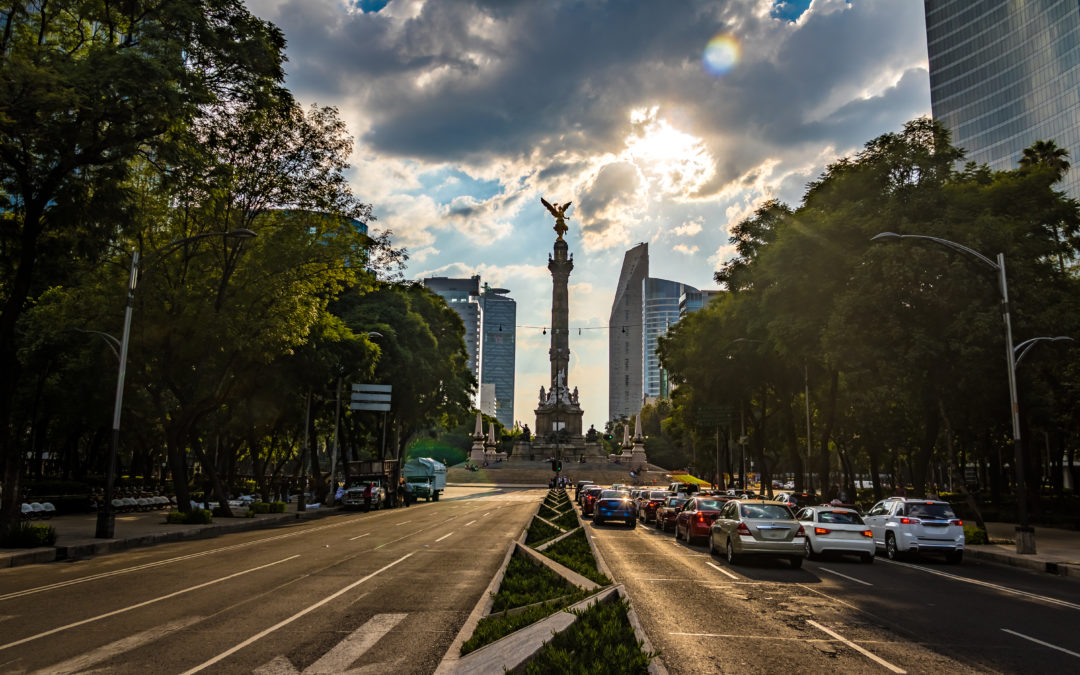During last’s year’s United Nations climate summit in Glasgow, Mexico signed the COP26 Declaration and agreed to work toward accelerating the transition to 100% zero-emission car and van sales globally by 2040, and no later than 2035 in leading markets.
Since then, Mexico has taken steps to help achieve that ambition. On November 12, 2022, the Secretary of Foreign Affairs announced at the COP27 that Mexico will reduce its greenhouse gas emissions by 35% in 2030, up from the 22% announced previously. The new plan includes a 50% of zero-emission vehicle (ZEV) sales target for cars and vans in 2030.
If adequate policies are adopted, a steady annual growth in Mexico’s ZEV sales would lead to peak CO2 emissions from the vehicle fleet in 2040 and a 15% reduction from 2020 levels in 2050, according to modeling by the International Council on Clean Transportation.
Electric car sales have more than doubled since COP26
Electric passenger car sales, including battery-electric and plug-in hybrids, in Mexico are up 165% in the first half of 2022 compared to the first half 2021. Almost 4,000 electric passenger cars were sold in the first half of 2022, but electric vehicles (EVs) still constitute just 0.3% of new passenger car sales.
With almost 2,100 charging stations, Mexico has the most extensive EV charging infrastructure in Latin America. For the emissions from road transport to be aligned with Paris Agreement goals, though, Mexico will need faster public charger deployment with over 50% yearly growth in public charging power output from mid-2022 to 2030.
Most electric cars on the road in Mexico are imported. In November 2020, the Secretary of Economy introduced a temporary import tax exemption that made imported EVs duty-free until 2024. Mexico also incentivizes electric cars by offering income tax deductions and annual vehicle tax and vehicle registration tax exemptions to those who purchase them.
Automakers are eyeing production in Mexico
More automakers are considering expanding electric car production in Mexico. Ford plans to triple the EV production capacity at its assembly plant in Cuautitlan, north of Mexico City, where it manufactures the Mustang Mach-E. General Motors will invest $1 billion to expand EV production in the state of Coahuila starting in 2023 and the company’s Ramos Arizpe facility will be its fifth manufacturing site to produce electric cars in North America.
Canada and the United States are Mexico’s largest export markets. 80% of Mexico’s domestic car production is sent to those two countries. With the passage of the U.S. Inflation Reduction Act (IRA), electric cars need to be assembled in North America to get a clean vehicle credit from the federal government. Further, according to its latest industry policy strategy, Mexico plans to set a target that half of its car production use zero-emission technology by 2030.
Accelerating the transition in Latin America
Mexico has taken a big leap forward in decarbonizing its transportation sector, but a cohesive and comprehensive strategy is needed to put the country on a clear path to a zero-emission future. Mexico needs a binding phase-out target for combustion engine vehicles and stronger policies to accelerate the transition to 100% ZEVs for new sales.
Mexico could learn from other Latin American signatories to the COP26 Declaration that have shown progress. Just before COP26, Chile released its National Electromobility Strategy and became the first Latin American country with a 100% ZEV sales target for all road vehicles by 2035. Additionally, Uruguay targets installing one charging station every 50 km along the Electric Route, which is the first highway corridor with an extensive charging network in the region.

